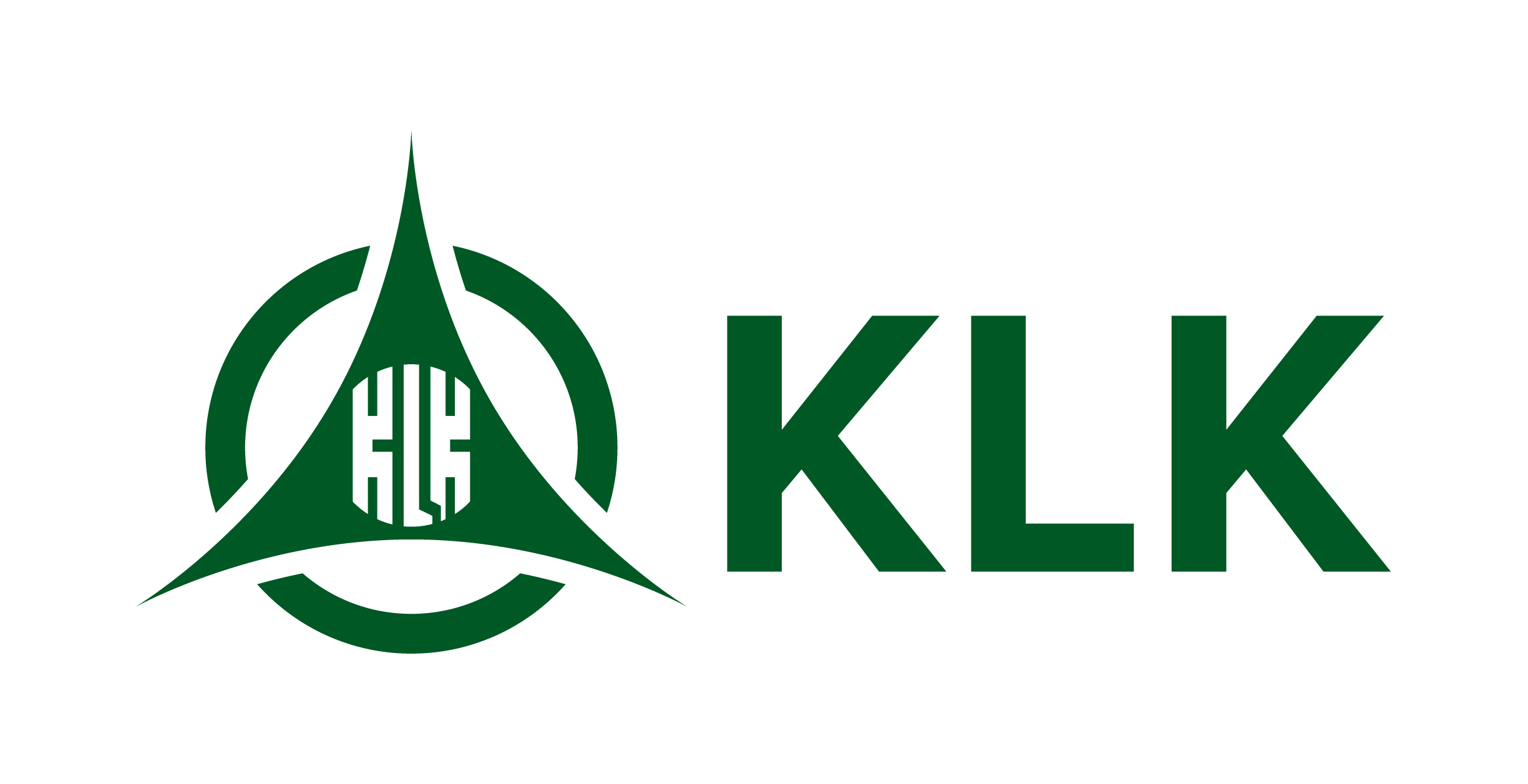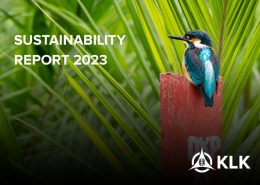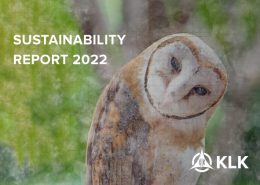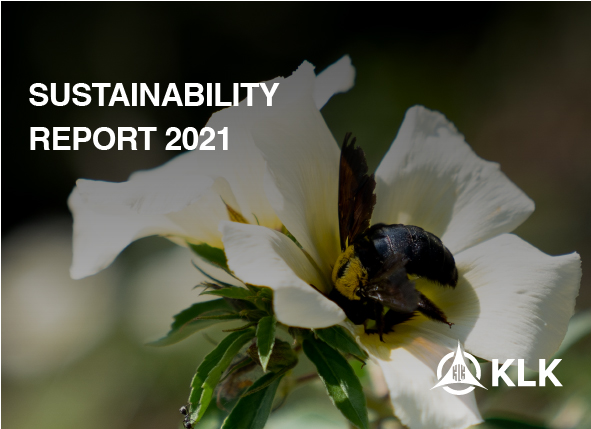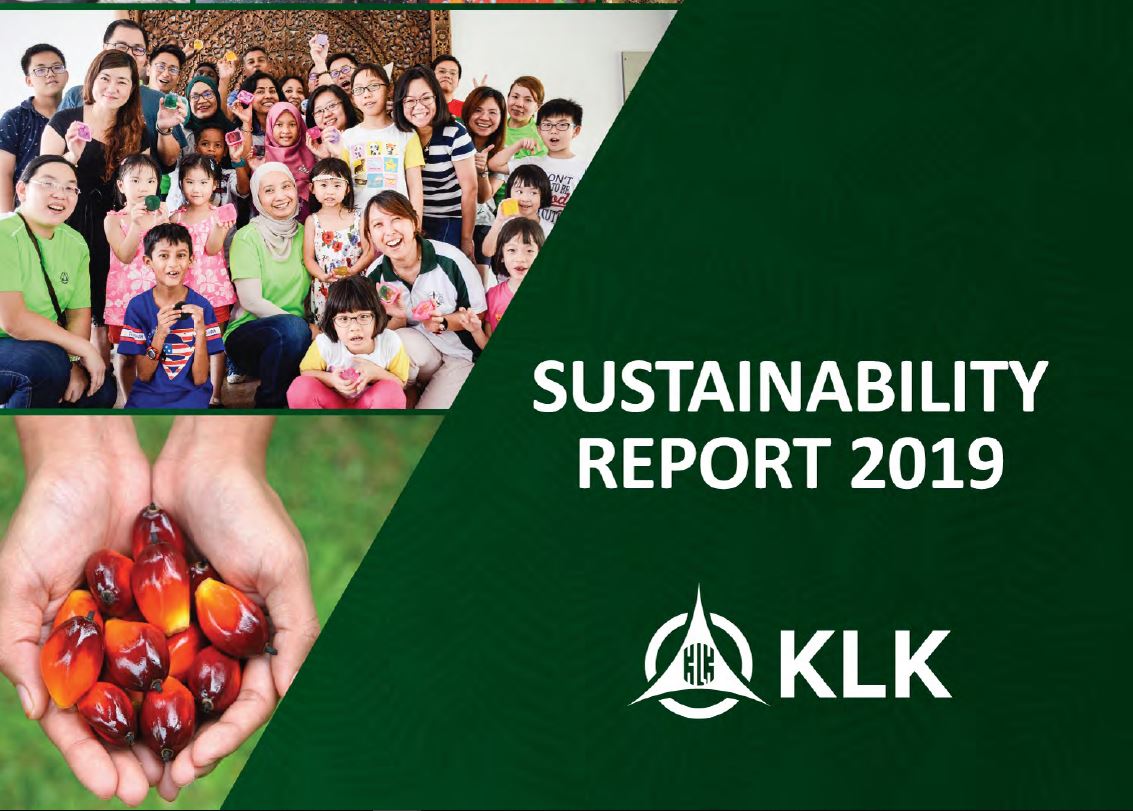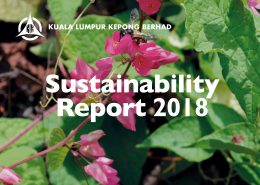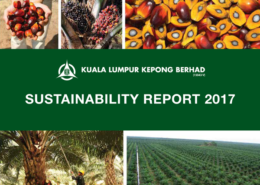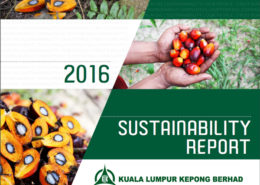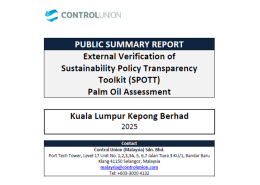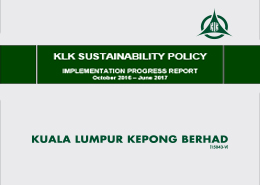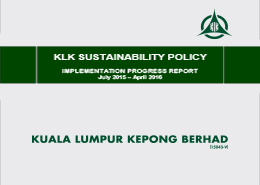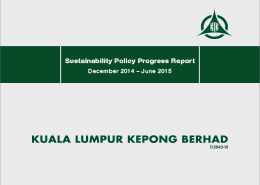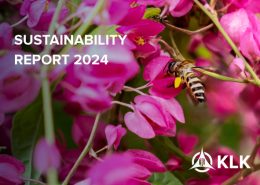
MARKETPLACE
KLK strives for excellence and is committed to maintaining high standards of business ethics and practices;
offering quality products and services and being a good and responsible corporate citizen.
SUSTAINABILITY POLICY
Since the introduction of the first Sustainability Policy in 2014, KLK has continuously strengthened its commitment to sustainable and responsible practices. The policy has evolved through regular reviews, with the latest update (Version 3.0, dated 30 May 2025) reinforcing KLK’s position as a responsible producer in the industry.
Applicable to all KLK’s plantation and manufacturing operations, including subsidiaries, joint ventures, and entities under management control, the policy extends to employees, contractors, and suppliers. This approach encourages collaboration across the supply chain to advance sustainability objectives.
The policy outlines commitments across key pillars: Environmental Stewardship, Social Responsibility, Sourcing and Governance. Particular emphasis is placed on human rights, including protections for guest workers, adherence to the Universal Declaration of Human Rights, and compliance with ILO core conventions. Fair recruitment, freedom of association, and zero tolerance of forced and child labour are key highlights.
Environmental commitments include no deforestation post-30 August 2018, no new development on peatlands, and measures to protect biodiversity. The policy also addresses greenhouse gas emissions by promoting continuous innovation and investment to support net reductions.
Alignment with international and national frameworks such as RSPO Principles & Criteria, MSPO, and ISPO ensures practices remain consistent with evolving stakeholder expectations. Transparency, accountability, and continuous improvement remain at the core of this sustainability journey.
Read the full Sustainability Policy here
SUSTAINABILITY REPORT
Kuala Lumpur Kepong Berhad (KLK) has journeyed through 110 years of history and is a testimony that we have been sustainable in our existence and in our business. We believe in transparency, and hence the issuance of this, our first Sustainability Report based on the Global Reporting Initiative standards, to share with all, our sustainability efforts.
SPOTT PUBLIC SUMMARY REPORT
PROGRESS REPORT
